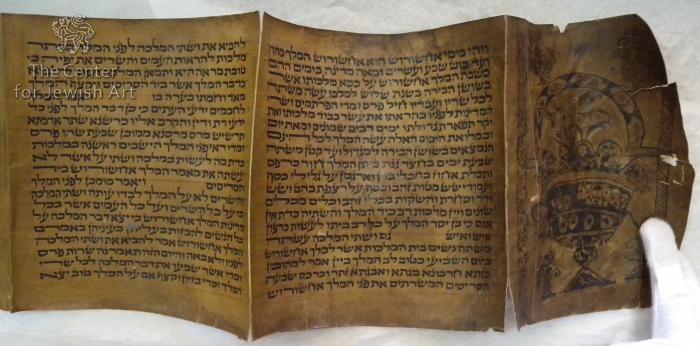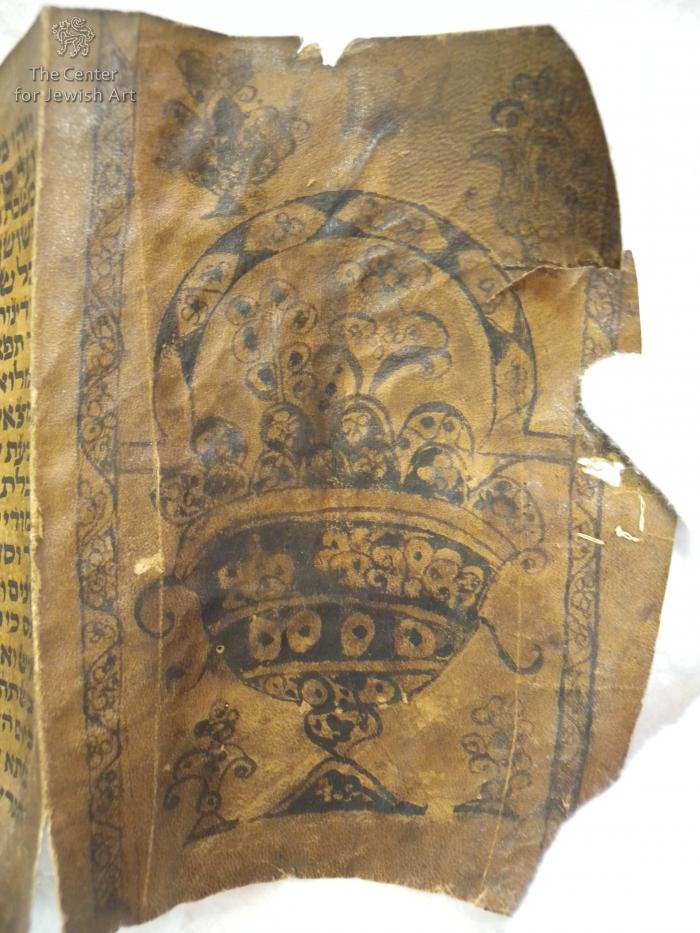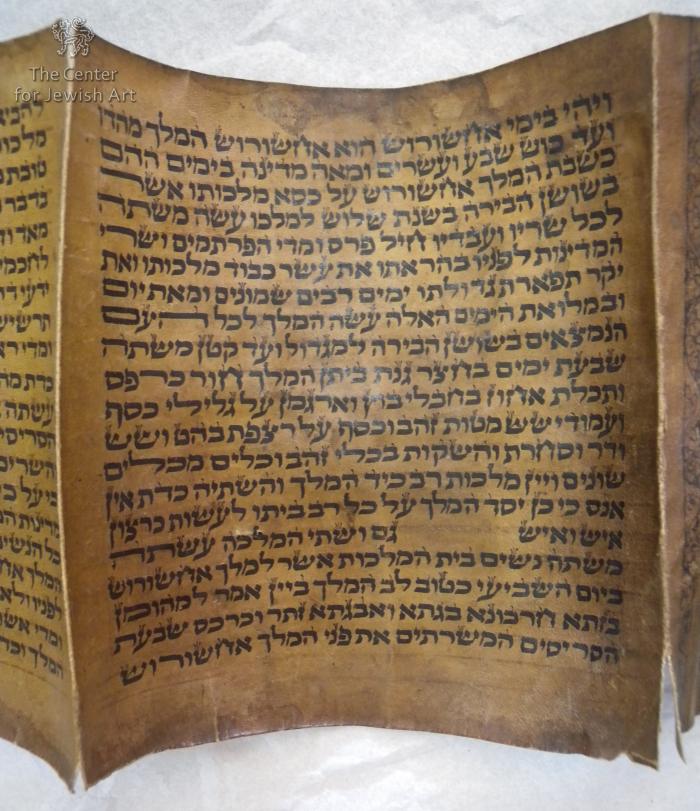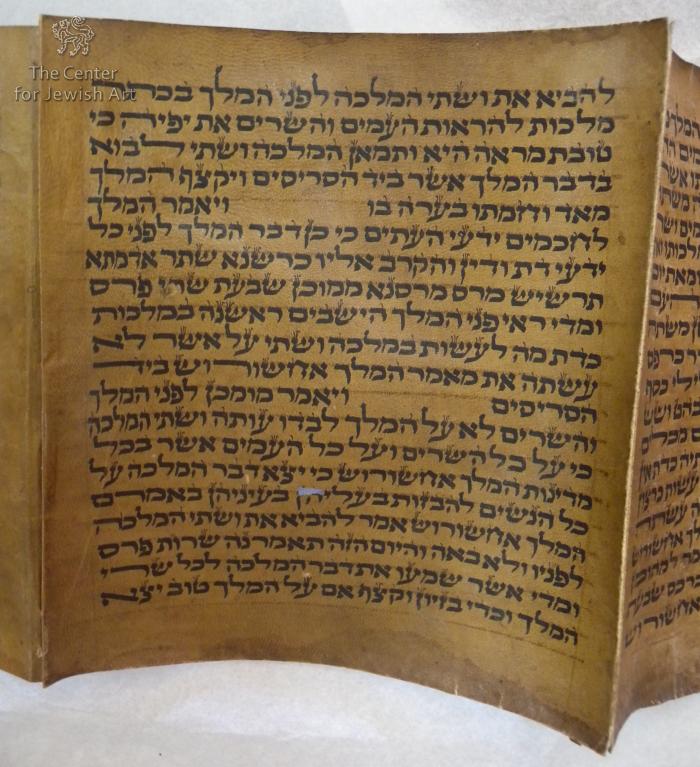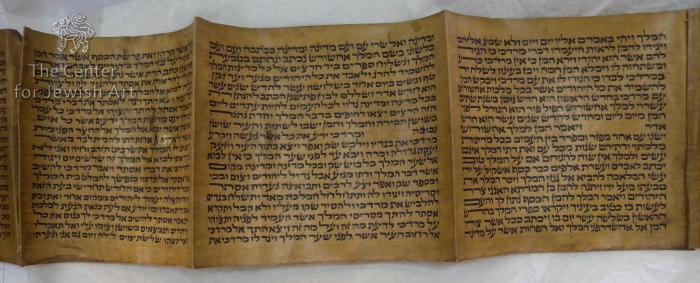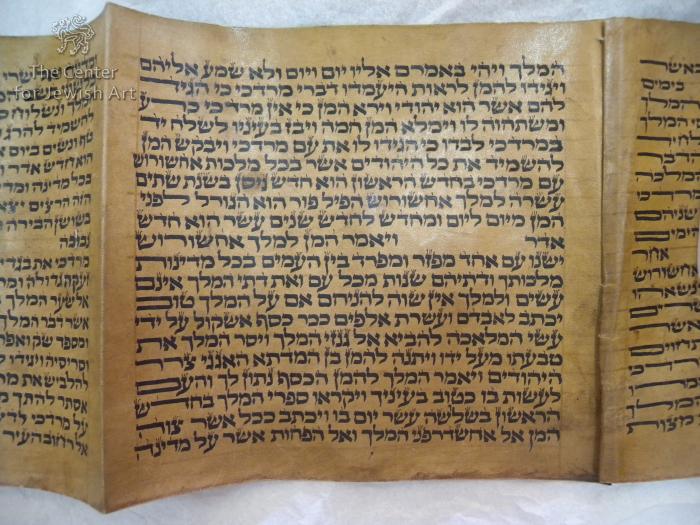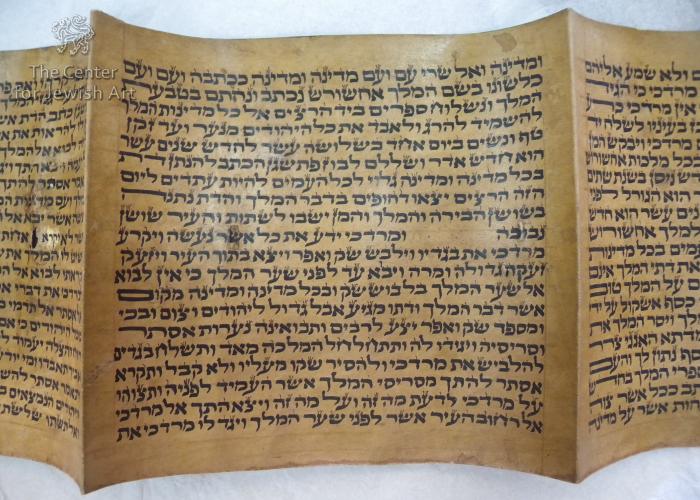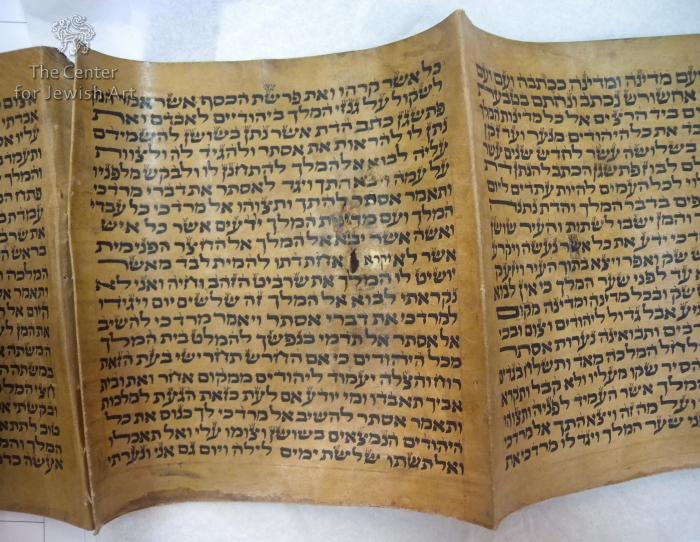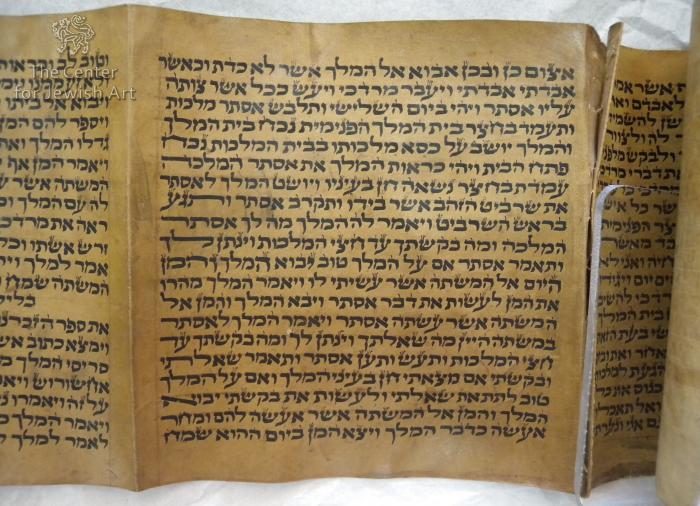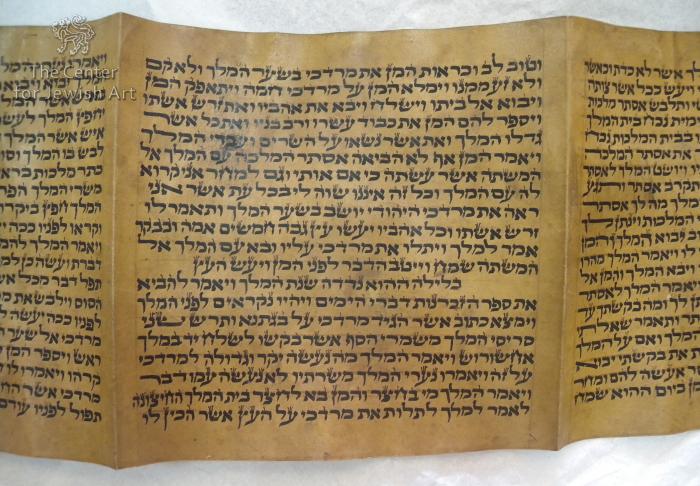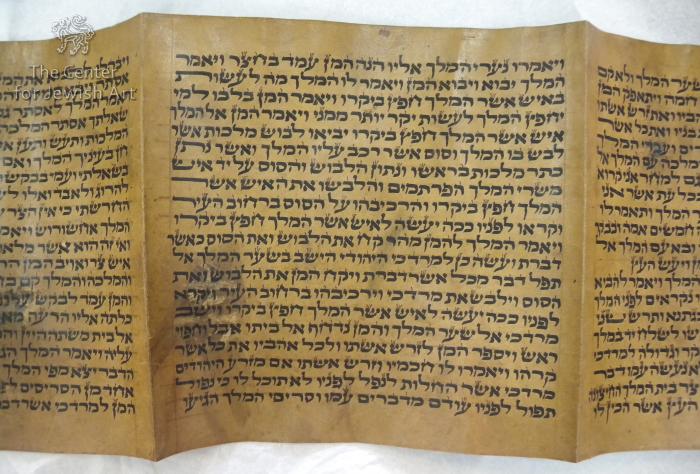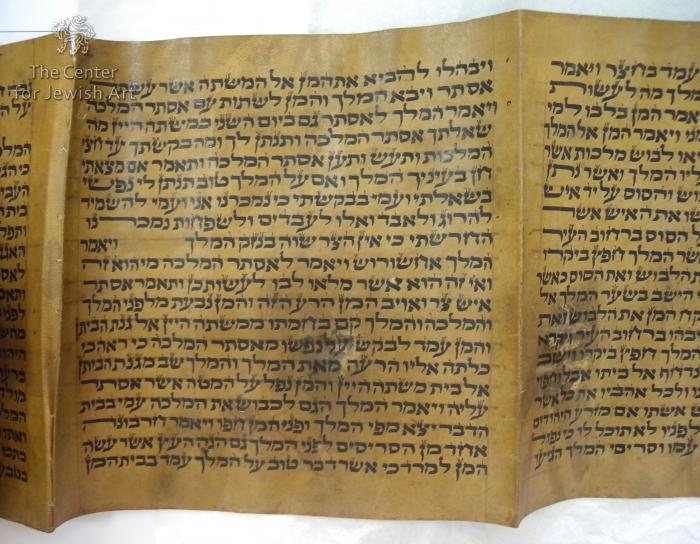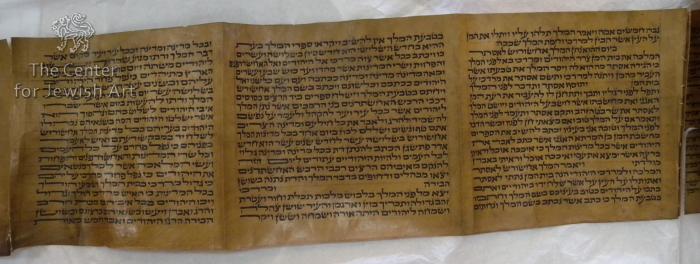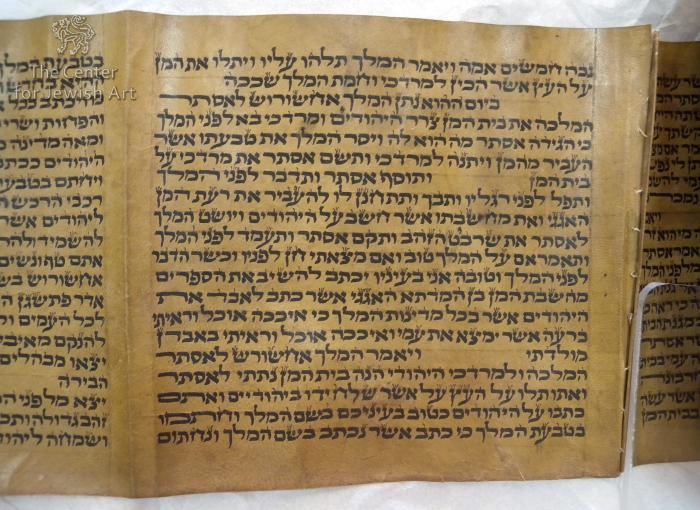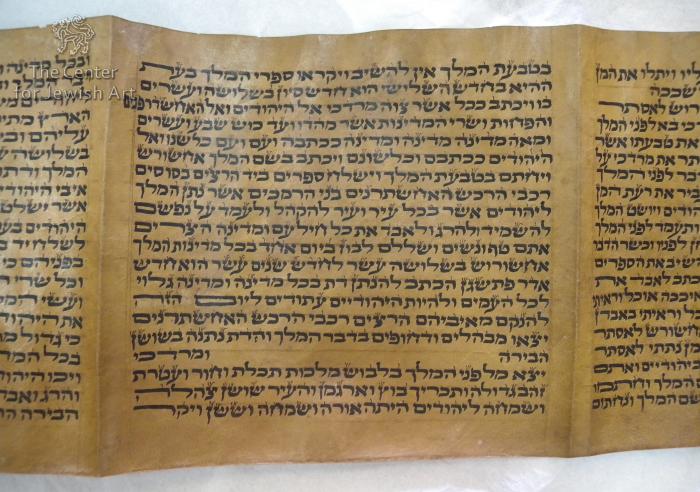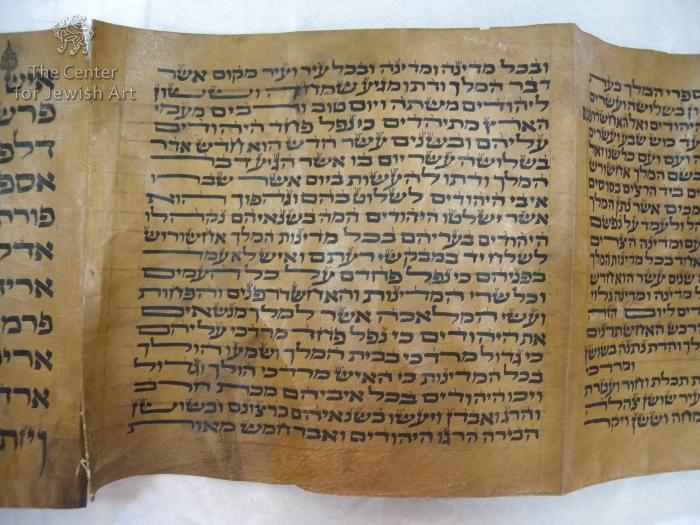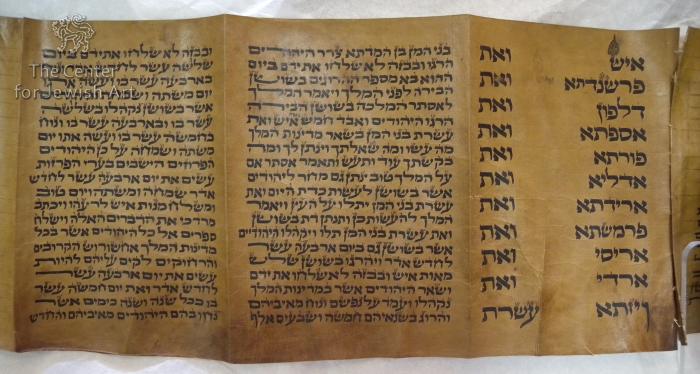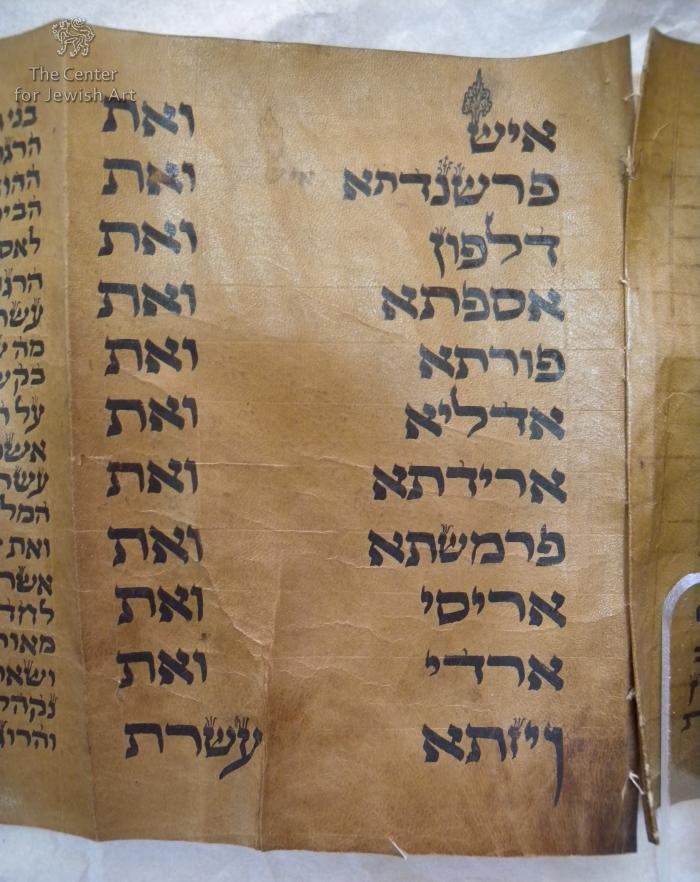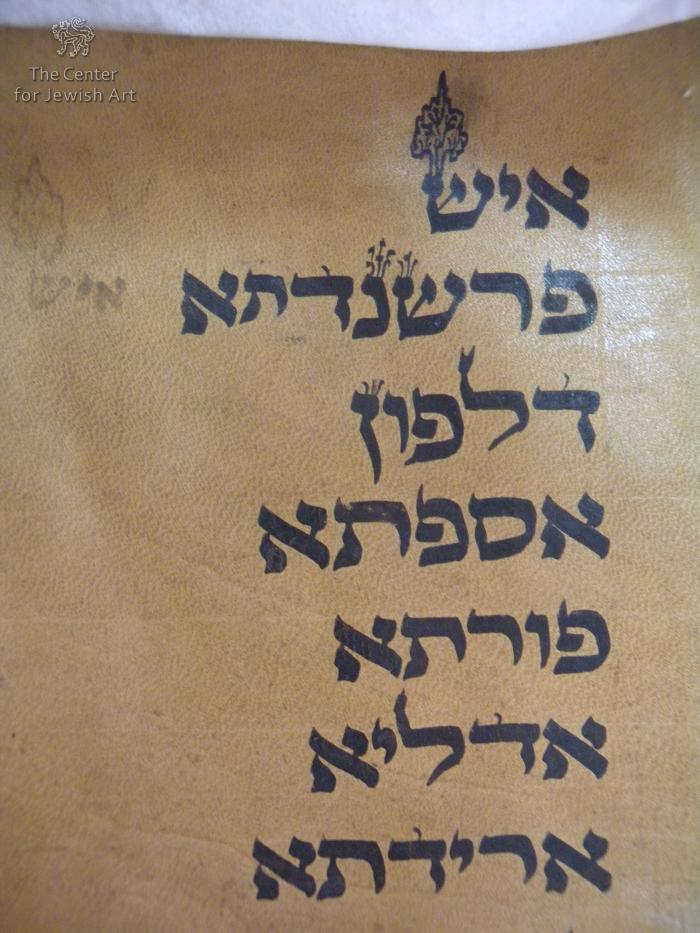Obj. ID: 34775 Hechal Shlomo Leather Esther Scroll with a Vase, North Africa (?), 18th-19th century

Dimensions of the selected details in the scroll:
- the text column - 135x140 mm;
- the space between the text columns - ca. 20 mm.
- the opening decoration - 160x100 mm;
- an average letter: 4 mm (height);
- spaces between the subsequent lines of the text: 4 mm;
- the letter ו in col. 17: 16 mm (height).
The opening section of the scroll is preserved in fair condition; the sheet is torn and the leather is very dark.
The sheets are folded between the text columns; this suggests that the scroll could be used for the Megillah reading.
The scroll is made of dark brown leather (gvil) membranes and opens with a depiction of a vessel that can be either a vase or a basket filled with oval unidentified elements. It is executed solely in black ink and besides a few decorated letters, this is the only ornamentation in the megillah.
The Book of Esther in Hebrew
The scroll is composed of 7 membranes containing 21 text columns with 20 lines each, except for col. 17 with 11 lines divided into two half-columns.
The text is inscribed with intense black ink, in the Oriental square script on the hair side of the leather membranes that are thick and stiff. The letters are decorated with typical single or triple tagin but in several cases, sophisticated forms composed of multilevel tagim are added to the letters.
The letter ח (Es. 1:6) is about 2 mm higher than an average letter in the scroll but despite this, it does not stand out from the text. The letter ת (Es. 9:29) is slightly larger than other letters in the scroll and it is elongated. Other enlarged and diminished letters can be found in col. 17.
Col. 10 contains slightly larger letters forming the tetragrammaton.
The width of the vertical components of the letters is almost equal to the width of their horizontal components.
The ruling is made along the whole length and height of the membranes. Horizontal and vertical lines are well visible on both sides of the membranes.
The membranes in the scroll are stitched together.
None
A few inscriptions in Hebrew written by different hands are placed at the end of the manuscript; one of the notes is erased. Two more inscriptions on the blank side of the first and fifth sheets are placed.
In col. 17, the word איש that appears in the first line of the column is inscribed again between the second name and the word ואת. The word, like the one above, is decorated with elaborated tagin (see "Codicology").
Some corrections in the text are visible, e.g. on the second sheet, there are erasures and in one place, a wrong letter was cut out and a small piece of leather is glued underneath on which a correction was made.
Leather Esther scrolls are only rarely decorated; for other examples see "Related objects".
No bibliography on the scroll is available.


